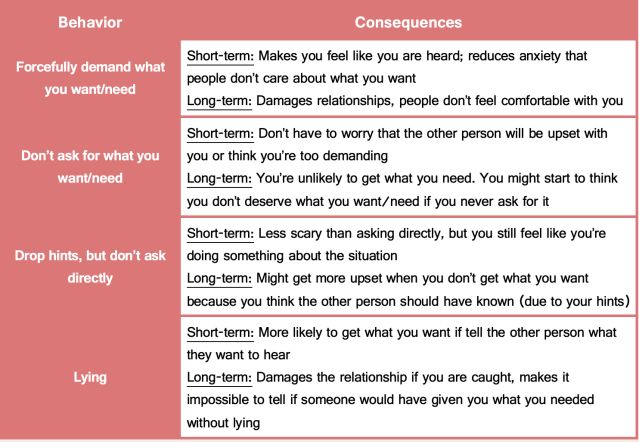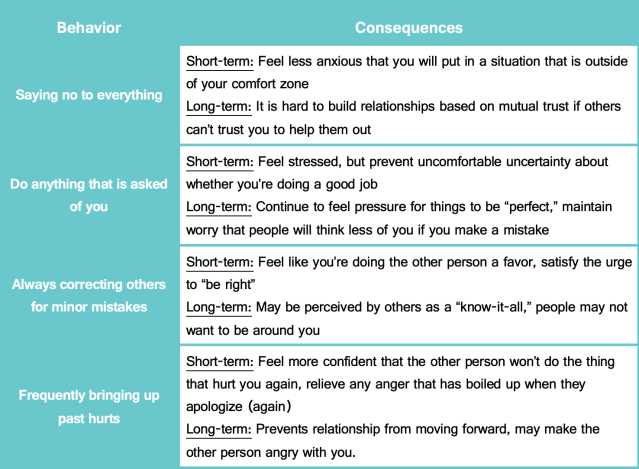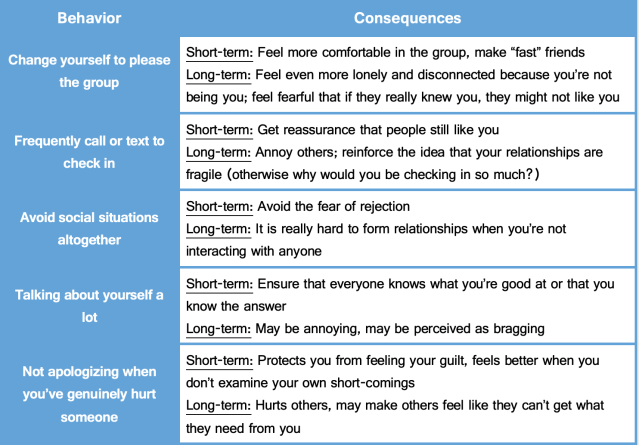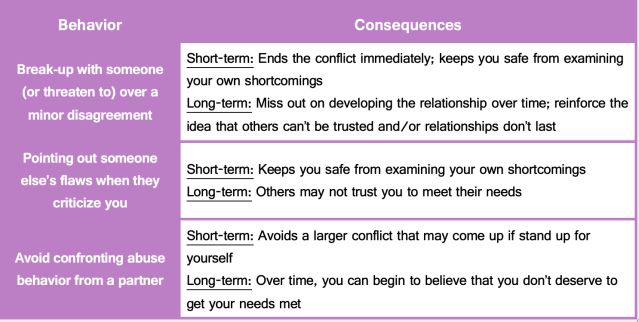Relationships
4 Ways Lack of Trust Sabotages Relationships
Trust issues can negatively impact relationship behaviors.
Posted March 2, 2024 Reviewed by Ray Parker
Key points
- Past experiences in relationships form trust.
- Problems with trust can inhibit the building of healthy relationships in the future.
- Relationship behaviors affected by trust issues include setting limits and deepening or ending relationships.
The personality trait most associated with relationship success is, no surprise, agreeableness (on a continuum with antagonism). People with higher agreeableness tend to trust others' motives and communicate in a straightforward manner; they care deeply about the plight of others.
On the other hand, people with lower agreeableness may have difficulty trusting others or may be suspicious of others' motives. They might sometimes be combative or value being right over getting along with others.
In contrast to more biologically-based personality traits (e.g., the tendency to experience negative emotions or act on impulse), difficulties relating to other people are often the result of life experiences. These experiences can include not receiving enough support growing up, being cheated on or broken up abruptly, or even experiencing abuse. People with these experiences may find it difficult to trust others (which makes perfect sense).
If you feel vulnerable or unsafe in relationships, you might behave in ways to protect yourself (e.g., abruptly ending a conversation or lashing out in anger). For example, you might feel abandoned (and angry) when your partner comes home after work an hour late and hasn't texted you. You might repeatedly text them several angry messages and continue to yell when they get home.
These behaviors are understandable if you have had negative experiences in the past. Unfortunately, the intensity of the anxiety or anger can cloud your ability to see what it is you really wanted—a nice night with your partner—and can actually make the rest of the night, and perhaps even the relationship itself, worse off. Moreover, this pattern of instability reinforces the idea that other people cannot be trusted.
There are four types of relationship behaviors that can go awry when people have difficulty trusting others.
1. Getting what you need from others. We all need things from other people. Your needs, as are your relationship and particular circumstances, are unique to you. For example, you may need to ask for a raise from your supervisor or more displays of affection from your partner.
It can be tricky for all of us to find the right balance of what to do and say to effectively ask for what they want. People with a history of not getting what they need from others (parents, caregivers, etc.) may find this especially hard; you may have trouble trusting that others can give you what you need.
Or, perhaps past relationships have led you to believe that you don't deserve to get what you want from others. This can lead to "over-correcting" behaviors, such as intensely demanding what you need or not asking at all. Unfortunately, these types of relationship behaviors make it even less likely to get what we need from others.

2. Setting limits. A limit is a boundary you set for yourself when you are not physically or emotionally able or comfortable giving someone else what they want. Like our needs, our limits are natural, vary from person to person, and are influenced by values, culture, and specific circumstances.
Limits can be physical (e.g., personal space, boundaries with sexual behaviors) or emotional (e.g., sacrificing your needs for others, taking too much on at work or in a relationship). They can even be different at different times. For instance, we may have narrower emotional limits after a stressful day at work than after a restful weekend. Often, a limit looks like saying "no" to someone's request.
It can be hard to effectively set limits, especially when you haven't seen effective limit-setting modeled by others (caregivers, romantic partners, co-workers, etc.). You may not know what your limits are until they get crossed. Are there relationships where you always give more than you get? Do you struggle to stick up for yourself?
Some people find it hard to set limits because they feel they don't deserve to feel safe or comfortable (e.g., take on too much at the expense of their well-being). Others want to be safe and comfortable so badly that they might over-set limits (e.g., say no to everything). Setting balanced, values-driven limits and communicating these limits effectively can promote healthy relationships, decrease conflict, and leave you with more self-respect.

3. Forming or deepening relationships. There may be several situations where you want to start a new relationship with someone (a friendship, a romantic or professional relationship, to name a few examples). Or, you might want to reconnect with someone like a friend or a family member you haven't seen in a while.
Perhaps you are already in a relationship with someone you love or care about and are looking to improve your connection with them. Pursuing new relationships sounds like a great thing, yet it can be extremely anxiety-provoking. You have to put yourself out there, and that might mean stepping outside your comfort zone, especially if you have had negative experiences with relationships in the past.
Despite wanting a relationship, you might withhold personal information in conversations to protect yourself. Or, you might be so anxious about a new relationship working out that you check in with the other person frequently.
Examining your values can help you determine the sweet spot that will bring you closer to the relationships you want.

4. Deciding when to end a relationship. Finally, sometimes it may be necessary to end relationships that aren't working for you in the long term. This can be very hard to navigate. Fears that you don't deserve better or will never find someone else might keep you from distancing yourself from people who mistreat you.
You might dismiss or put up with behaviors that continue to cross your boundaries. On the other hand, when you are feeling strong emotions like anger or fear that someone will leave you first, you might decide to end the relationship (e.g., "I'll hurt them before they can hurt me."). Trying to protect yourself in the moment makes you feel worse in the long run.
You may be more likely to make an impulsive decision to end a relationship in the heat of the moment when you're having trouble expressing yourself or unsure what it is you truly need. In these types of high-emotion situations, you are more likely to regret your decision to end the relationship.
It may also hurt your relationship if you decide you want to get back together in the future.

What to Do Next?
Do you experience difficulties with any of these relationship behaviors? The first step is to give yourself a break. Protecting yourself from getting hurt, especially if you've been hurt in the past, is a very powerful motivator.
References
You can find free resources (e.g., worksheets) on my website.




